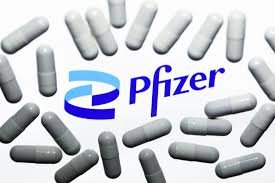Pharmaceutical company, Pfizer, has reiterated its commitment to continue to create awareness on hemophilia.
Similarly, it has also stressed the need for innovation in access to hemophilia treatments in Africa.
Hemophilia is a rare genetic bleeding disorder that causes blood to take a long time to clot because of a deficiency in one of several blood clotting factors.
People with hemophilia are at risk of excessive and recurrent bleeding from modest injuries, which have the potential to be life threatening.
Globally, according to the World Federation of Hemophilia (WFH), an international not-for-profit organisation, there were more than 38,000 were living with hemophilia B in 2021.
Pfizer on Thursday, April 13, 2023, organised a webinar on hemophilia where experts shared critical information on the condition with some journalists and media practitioners in West and Central Africa.
The purpose of the webinar was to allow the journalists to interact with the experts so as to enable them get first-hand information on the condition in the sub region as well as the various interventions that are being put in place to care for patients.
It is Pfizer’s goal to make sure patients living with hemophilia are seen, heard, and never forgotten as it continues to work tirelessly to find breakthrough solutions and therapeutic options to change their lives.
Speaking at the webinar, a senior lecturer at the Department of Child Health at the Kwame Nkrumah University of Science and Technology (KNUST), Dr Vivian Painstil, urged the government to increase its commitment towards hemophilia care in the country.
She explained that it had always been the World Hemophilia Federation that had been providing support for people living in the country with little commitment from the government.
Dr. Painstil who doubles as a Paediatrician working at Komfo Anokye Teaching Hospital (KATH) said also called for a comprehensive care systems for people with hemophilia.
She said people with hemophilia were at risk of excessive and recurrent bleeding from modest injuries, which could lead to death.
She therefore called on government to put in efforts by providing the needed logistical support for hemophilia care in the country.
She explained that in Ghana, people with hemophilia could only access hemophilia care from the Teaching and some selected regional hospitals.
Dr Painstil said currently, 309 patients had been registered by the Ghana Hemophilia Society, revealing that there were about 1500 cases yet to be diagnosed.
For his part, the Pfizer Medical Director for Sub-Saharan Africa, Kodjo Soroh, for his part said, “Pfizer’s efforts at advancing treatment for hemophilia and bridge gaps in access to care resonates with this year’s theme of World Hemophilia Day’s (WHD) Access For All: Prevention of Bleeds.”
He said Pfizer’s commitment to equity and continued investment in hemophilia was evident in its more than 30 years of experience in developing therapies for hematological disorders as it has a deep understanding of the significant challenges that people living with hemophilia continually face.
He pledged the commitment of Pfizer to continue to raise awareness on the condition, saying “We will continue to amplify and celebrate the work of the global hemophilia community as we create awareness on the need for innovation in access to hemophilia treatments.”
Professor of Hematology and Blood Transfusion of the University of Lagos,Professor Akanmu said people with severe hemophilia “often bleed spontaneously into their muscles or joints, or rarely into other critical closed spaces such as the intracranial space, where bleeding can be fatal.”
BY BENEDICTA GYIMAAH FOLLEY

